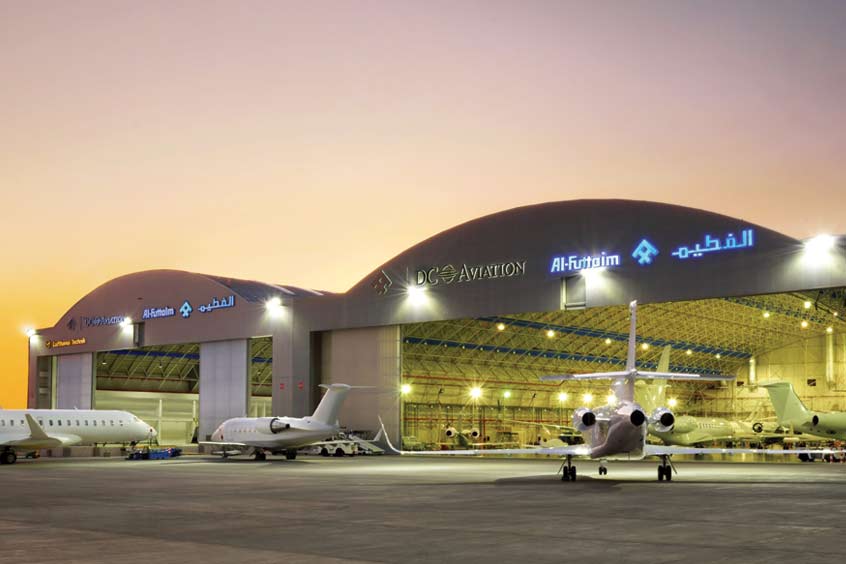Why visit ACE ’25?
DC Aviation Al-Futtaim
Charter
DC Aviation Al-Futtaim
Maintenance
DC Aviation Al-Futtaim
FBO/Handler (Al Maktoum International / Dubai)
BAN's World Gazetteer
United Arab Emirates
Following the easing of air travel restrictions, DC Aviation Al-Futtaim (DCAF) has seen private and business jet activity pick up at its fully integrated facility at Al Maktoum International airport located in Dubai South.
The increased activity in private and business aircraft movement is a result of the opening up of the economy and the various tourism-related initiatives undertaken by the UAE government that have helped Dubai bounce back faster than some other cities. The increase in aircraft movement was also a result of strengthening business activity across the GCC, Asia and Europe and a growing number of premium commercial passengers flying on private jets due to health and safety concerns.
DCAF has seen increased activity across business functions including charter, ground handling and MRO. MD Holger Ostheimer says: “After the lockdown eased in May we witnessed an increase in the number of charter enquiries and bookings. Initially, this was a result of people wanting to get back to their home countries. As more countries started to open up their borders, we started to see more leisure travellers. We have started to see travellers to popular holiday destinations such as the Maldives. Now we are witnessing visitors from the CIS and Russian countries, coming over to stay in the UAE during the winter months. We remain optimistic for the first quarter of 2021.”
Due to the increased demand for charter services with some first and business-class passengers now preferring to travel by private jets, DCAF has also made available a 12-seater Challenger 604 aircraft with a maximum range of 4,024 nm. The aircraft can fly non-stop to popular destinations from Dubai including London, Mauritius, Moscow and Paris.
The company also saw an increase in MRO services due to manufacturer requirements to perform inactive aircraft checks in addition to the routine maintenance tasks for the aircraft during the lockdown period. At the end of the grounding period, the aircraft then required return to service checks consisting of cleaning and inspections to ensure no foreign objects had infiltrated the aircraft, check and replenishment of the aircraft systems followed by operational checks to ensure all systems were working as required prior to any flights.